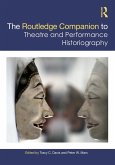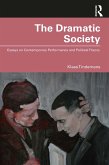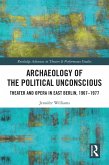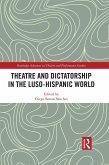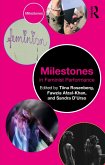Drawing on new research from the ERC project 'Developing Theatre', this collection presents innovative institutional approaches to the theatre historiography of the Global South since 1945. Covering perspectives from Africa, Asia, the Middle East, Latin America and Eastern Europe, the chapters explore how US philanthropy, international organisations and pan-African festivals all contributed to the globalisation and institutionalisation of the performing arts in the Global South. During the Cultural Cold War, the Global North intervened in and promoted forms of cultural infrastructure that were deemed adaptable to any environment. This form of technopolitics impacted the construction of national theatres, the introduction of new pedagogical tools and the invention of the workshop as a format. The networks of 'experts; responsible for this foreground seminal figures, both celebrated (Augusto Boal, Efua Sutherland) but also lesser known (Albert Botbol, Severino Montano, Metin And), who contributed to the worldwide theatrical epistemic community of the postwar years.
Developing Theatre in the Global South investigates the institutional factors that led to the emergence of professional theatre in the postwar period throughout the decolonising world. The book's institutional and transnational approach enables theatre studies to overcome its still strong national and local focus on plays and productions, and connect it to current discourses in transnational and global history.
Developing Theatre in the Global South investigates the institutional factors that led to the emergence of professional theatre in the postwar period throughout the decolonising world. The book's institutional and transnational approach enables theatre studies to overcome its still strong national and local focus on plays and productions, and connect it to current discourses in transnational and global history.
Dieser Download kann aus rechtlichen Gründen nur mit Rechnungsadresse in A, D ausgeliefert werden.



